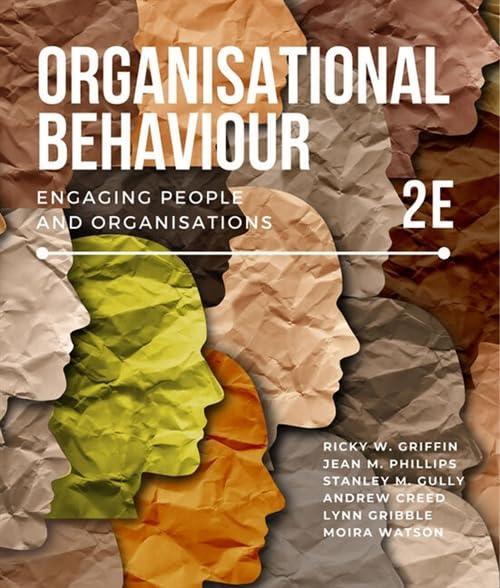There is a growing body of work exploring the notion of destructive leadership, a type of leadership
Question:
There is a growing body of work exploring the notion of destructive leadership, a type of leadership that might also be generally understood as bullying. While its definition is ‘… systematic and repeated behaviour by a leader, supervisor or manager’,61 the focus is on both the employee and the organisation. Given that in 80 per cent of bullying cases it is the manager or leader who is reported, this type of leadership cannot be ignored. Most of the research focuses on the productive outcomes of leadership, but in some cases where the control and direction is seen as fear and intimidation this has been termed destructive leadership.62 Other terms such as toxic leaders are also included in this construct. Whether the actions are active or passive, direct or indirect, or physical or verbal, where the subordinate feels their interests and those of the organisation to be compromised, it could be considered part of the destructive leadership construct. These leaders may lie, and use dishonourable tactics as a means of self-aggrandisement, which is sometimes also parasitic. It is not about intent but outcome and where the ‘followers’ are led to behave in ways that are inconsistent with the legitimate needs of the organisation.
Reflection question
Can you think of a publicly identified destructive leader? Suggest some possible reasons why people still follow these destructive leaders.
Step by Step Answer:

Organisational Behaviour Engaging People And Organisations
ISBN: 272389
2nd Edition
Authors: Ricky W. Griffin, Jean M. Phillips, Stanley M. Gully, Andrew Creed, Lynn Gribble, Moira Watson





